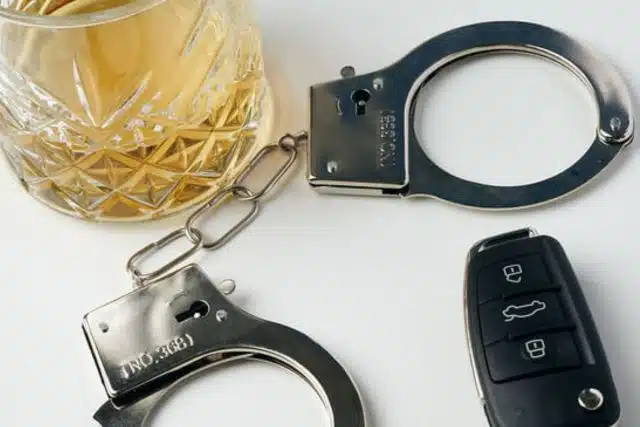Understanding DUI Blood Tests
In DUI cases, blood test results serve as crucial evidence in establishing the level of alcohol or drugs in an individual’s system. These results often are determinative factors in legal proceedings, influencing the severity of charges and consequences. The accuracy of DUI blood tests is paramount.
At the Benjamin Law Firm, LLC, we understand the complexities surrounding DUI blood tests and their implications in legal matters. With a wealth of experience handling DUI cases, our dedicated legal team is well-versed in the nuances of blood test evidence.
If you find yourself facing DUI charges and in need of seasoned legal representation, trust the Benjamin Law Firm, LLC to be your advocate in pursuit of justice and fairness.
What Are DUI Blood Tests?
DUI blood tests involve analyzing a sample of an individual’s blood to determine the concentration of alcohol or drugs present in their system. By measuring the blood alcohol concentration (BAC), authorities gain essential evidence to assess whether an individual was operating a vehicle while impaired.
DUI blood tests come in various forms, each designed to analyze different aspects of blood samples for substances that may impair a driver. Common types of DUI blood tests include:
- Blood Alcohol Concentration (BAC) Test: Measures the amount of alcohol in the bloodstream, indicating the level of intoxication.
- Toxicology Panel: Screens for a broad range of drugs, including prescription medications, illicit substances, and over-the-counter drugs.
- Radioimmunoassay (RIA): Utilizes radioactive markers to detect specific substances, offering high sensitivity in identifying drug presence.
- Immunoassay Test: Screens for the presence of specific drugs or their metabolites using antibodies, providing quick results.
- Whole Blood Testing: Analyzes the blood sample for alcohol and drugs, providing a comprehensive overview of impairing substances.
Legal Standards for Blood Tests
For individuals aged 21 and older operating non-commercial vehicles, the legal BAC limit is 0.08%. Commercial drivers face a more stringent threshold, with a legal limit of 0.04%. Additionally, Missouri enforces a zero-tolerance policy for drivers under the age of 21, making it illegal for them to operate a vehicle with any detectable BAC.
These legal standards serve as the basis for determining whether an individual is unlawfully operating a vehicle under the influence of alcohol. Understanding these legal limits is essential for individuals facing DWI charges, as they play a pivotal role in shaping legal proceedings and potential consequences associated with impaired driving.
Beyond the scientific analysis, these results carry significant weight, influencing the severity of charges and potential consequences an individual may face.

The Process of Obtaining Blood Test Results
Timeline for Blood Test Results
In DUI cases, the timeline from test to results follows a structured process. It starts with collecting a blood sample, usually at a medical facility or law enforcement agency. The sample is then sent to a laboratory for analysis. This could take several days.
After completion, the results detailing the blood alcohol concentration or the presence of drugs are transmitted to the law enforcement agency and reviewed by the prosecution. Simultaneously, the defense gains access to these results through a formal request. This means that you can usually get your results via your attorney before your trial.
Legal Procedures to Access Blood Test Results
To access your DUI blood test results, it may be helpful to follow these steps:
- Consult With Your Attorney: Your attorney will guide you on the procedures and requirements for legally requesting blood test results.
- Identify the Appropriate Authority: Determine the authority or agency responsible for retaining your blood test results. This information is often available through the law enforcement agency that conducted the blood test or the relevant medical facility.
- File a Formal Request: Draft a formal request for your blood test results, including your details, case information, and a clear statement expressing your desire to obtain the results. Ensure that your request adheres to any specific legal format or requirements.
- Submit the Request to the Appropriate Entity: Send your formal request to the identified authority or agency. Confirm the proper delivery method through mail, email, or an online portal, and retain the proof of submission for your records.
- Follow-Up Communication: Maintain open communication with the relevant entity. If specific timelines are outlined by law, inquire about the expected response time. Follow up with a courteous inquiry if there are delays in receiving the requested information.
- Review the Results with Your Attorney: Upon receiving the blood test results, thoroughly review them. Your legal counsel will help you interpret the findings, identify any irregularities, and strategize the most effective defense based on the results.
Remember, the process of legally requesting blood test results varies based on jurisdiction and specific legal procedures. Consulting with a knowledgeable attorney ensures you navigate this process precisely and comply with all applicable laws and regulations.
Importance of Obtaining Blood Test Results
The results from the blood draw form the cornerstone of evidence in DUI cases, influencing the severity of charges and potential consequences. Understanding and accessing this information early in the legal process empowers individuals to mount a robust defense, allowing them to challenge inaccuracies, question procedures, and make informed decisions crucial for a fair legal outcome.

Preparing for Your DUI Trial with Blood Test Results
Preparing for your DUI trial with blood test results requires a meticulous approach to ensure a strong defense. Begin by thoroughly analyzing the blood test results; understand the specific alcohol levels and other substances detected. Identify potential discrepancies or errors in the testing process that could bolster your defense strategy. Strategically use the blood test results to your advantage by presenting alternative explanations, challenging the reliability of the test, or questioning the qualifications of the testing personnel. Crafting a compelling narrative around the blood test results is crucial for a successful defense.
Additionally, be aware of common mistakes to avoid, such as overlooking procedural errors, neglecting to seek expert testimony, or failing to challenge the admissibility of the blood test results. A well-prepared and strategic defense can significantly impact the outcome of your DUI trial.
Legal Support for Your DUI Case
An attorney well-versed in DUI defense can significantly impact the outcome of your trial by leveraging their knowledge of relevant laws, court procedures, and effective defense strategies. At Benjamin Law Firm, LLC, we can help by providing:
- Years of Experience in DUI Defense
- Thorough Analysis of Blood Test Results
- Strategic Defense Planning
- Negotiation Skills
- Personalized Legal Guidance
Choosing Benjamin Law Firm, LLC means partnering with a dedicated team committed to securing the best possible outcome for your DUI case.
With our comprehensive legal support, you can confidently navigate the legal system and work towards a favorable resolution. Call Benjamin Law Firm, LLC today for a confidential consultation with our experienced attorneys.

















